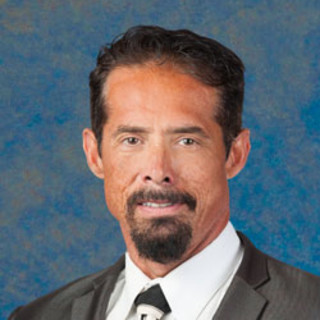It has always been difficult for medical professionals to balance the time needed for personal care, both physical and emotional, against the overwhelming demands on their time. This is particularly true today, given the extraordinary pressures created by health challenges generated through external factors such as the pandemic and those caused by genetics or lifestyle choices. However, focusing on this balance is critical for the welfare of both doctors and patients.
A few months ago, a woman called the nursing staff at my office to request a change in physician for her upcoming appointment. The request wasn’t odd, as patients ask to be seen by a different doctor for many reasons. However, in this case, the patient was not asking for a different doctor because she wanted a different opinion, a lack of trust, or other similar reasons. In the past, patients had even requested a change for such a simple reason as not relating to my accent. This has happened more than once. But in this case, the patient wanted a “less fit” doctor.
I must admit that I found this request strange, but it made me think. I assume her rationale was that I wouldn’t be sympathetic to her condition or life choices. She was in her 50s and had a “broken body.” I wouldn’t be able to relate. Perhaps a doctor with more average health status and body shape would approach the problem with less rigor or intensity.
I’ve never recommended a specialist based on their physical appearance and would not expect anyone else to do so. I have always believed that a healthy doctor would project more credibility and authority. I hadn't considered this intimidating. Perhaps it wasn't the outward appearance but the idea that I would have less empathy for her situation.
As I thought about these possibilities, I asked myself how I could use this reaction to improve my physician practice. This wasn't the first time I've considered how a physician's lifestyle might affect their patients. For instance, it seems patently contradictory when an overweight clinician recommends diet and exercise. I can imagine patients asking themselves: If something is not important enough for their doctor, why should I alter my comfort zone? The same advice from a fit doctor might elicit some level of cynicism in thinking that somehow being healthy comes naturally or easily.
In principle, I would like to motivate my patients and help wean them from the kind of excuses and thinking that keep many of them in an unhealthy state. I want to challenge them to change and improve through better life choices. How does a doctor do that while still keeping the particular challenges of every patient at the forefront and relating to them?
I certainly do not want to demotivate others through my appearance or demeanor. I have written books on my voyage to better health through exercise and nutrition. There are books in my office that articulate a process of transformation, including a vulnerable and candid story of a doctor having issues with weight and self-esteem and the process of recovery once the realization set in that, without change, there would be severe health consequences.
The intent is not for everyone to achieve a competition-level athletic build but to find more enjoyment in life through better health. This is true of both doctors and patients. Everyone has individual roadblocks to achieving this. For each patient, the reasons are too many to count. For doctors, it is primarily a lack of time, overwhelming stress, and emotional overload. It is not a lack of understanding of science. A balance must be achieved, and to do that, we must first understand the relevance and impact of this balance. In medical school, I was trained to earn the trust of my patients. The rationale behind this was that patients follow and listen to doctors they trust. I always assumed I had to lead by example if I aspired to build that kind of trust with my patients. My mantra has been that wellness and fitness are essential for good leadership. Furthermore, physician leadership is pivotal for excellent patient outcomes.
Also, part of the very reason I engage in healthy practices is what I see every day when these are disregarded. The ravaging aftermath of being overweight, the medical conditions of lack of exercise, and poor and unhealthy eating. Embracing a non-judgmental attitude reassures patients that they can seek medical guidance without fear of embarrassment or criticism, creating an indispensable part of a doctor's professionalism. Whether the doctor is fit or struggling with health issues, conveying information in this non-judgmental, empathetic manner elevates the conversation to both intent and science. I think we all have an inclination — at least from time to time — to judge others.
No matter how experienced, compassionate, and professional we are as physicians, we’re still human. I can admit that I have indeed struggled with patients like the 65-year-old morbidly obese male who complains at every visit about how hard it is to control his blood sugar levels with the medications prescribed. I want to convince him and others so badly of the importance of diet and exercise, but despite my attempts, they don’t want to hear it. Pharmacological or surgical interventions are the preferred route for many. I know I cannot magically change a patient’s attitude about their health. Nevertheless, I still believe that the best I can do for my patients is to offer them my sincere professional advice without prejudice or discrimination. If my physical presence is intimidating to some, I won’t begrudge them for seeking a doctor who makes them feel more comfortable. In the end, I still believe that leading by example is essential for a physician and that I can use my personal experience to inspire positive change.
How have you encouraged patients to improve their health? Share your strategies in the comment section.
Dr. Francisco Torres was born in Seville, Spain, and graduated cum laude from the University of Puerto Rico in 1982 with a degree in biology. He then attended the University of Puerto Rico School of Medicine and was awarded his medical degree in 1986. Dr. Torres performed his residency in physical medicine & rehabilitation at the VA Hospital in San Juan, Puerto Rico, before completing a musculoskeletal fellowship at Louisiana State University Medical Center in New Orleans. He went on to serve three years as Clinical Instructor of Medicine and Assistant Professor at LSU before joining Florida Spine Institute in 1993, and is the author of five books.
Previously published in KevinMD.
Illustration by Jennifer Bogartz







